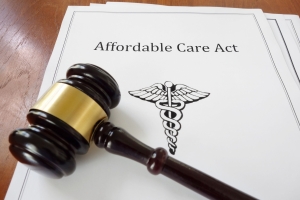PCORI Fee
The Affordable Care Act (ACA) created a research institute known as the Patient-Centered Outcomes Research Institute (PCORI). The goal of PCORI is to help patients and those who care for them make better-informed decisions about healthcare choices. PCORI is funded in part by fees which are charged to health plans. The following information is designed to help employers understand their upcoming payment obligations.
The Affordable Care Act (ACA) created a research institute known as the Patient-Centered Outcomes Research Institute (PCORI). The goal of PCORI is to help patients and those who care for them make better-informed decisions about healthcare choices. PCORI is funded in part by fees which are charged to health plans. The following information is designed to help employers understand their upcoming payment obligations.
The Affordable Care Act (ACA) created a research institute known as the Patient-Centered Outcomes Research Institute (PCORI). The goal of PCORI is to help patients and those who care for them make better-informed decisions about healthcare choices. PCORI is funded in part by fees which are charged to health plans. The following information is designed to help employers understand their upcoming payment obligations.
As a reminder, the Affordable Care Act (ACA) created a research institute known as the Patient-Centered Outcomes Research Institute (PCORI). The goal of PCORI is to help patients and those who care for them make better-informed decisions about healthcare choices.
The Affordable Care Act (ACA) includes several taxes to fund various parts of the healthcare law, such as Medicaid expansion and Health Insurance Marketplace subsidies. Since the ACA became law, there have been debates in Congress about many of the taxes. Some have argued for repeal, some have argued for change and others have argued for extensions of various tax components of the law.
The Affordable Care Act (ACA) created a research institute known as the Patient-Centered Outcomes Research Institute (PCORI). The goal of PCORI is to help patients and those who care for them make better-informed decisions about healthcare choices. PCORI is funded by temporary fees which are charged to health plans. The following information is designed to help employers understand their upcoming payment obligations in 2020.
Whether it be to inflation adjustments, new laws, tweaks to existing regulations or other reasons, each new year brings changes to health plans and other benefits. Here is a summary of 10 important changes taking effect in 2019.
1) There will be no penalty under federal law if you don’t have health insurance. The Tax Cuts and Jobs Act made the cost for not having health insurance $0 starting in 2019.
The Affordable Care Act (ACA) created a research institute known as the Patient-Centered Outcomes Research Institute (PCORI). The goal of PCORI is to help patients and those who care for them make better-informed decisions about healthcare choices. PCORI is funded by fees which are charged to health plans.
The following information is designed to help employers understand their upcoming payment obligations.
The Affordable Care Act (ACA) created a research institute known as the Patient-Centered Outcomes Research Institute (PCORI). The goal of PCORI is to help patients and those who care for them make better-informed decisions about healthcare choices. PCORI is funded by fees which are charged to health plans.
The following information is designed to help employers understand their payment obligations.
- The fee is paid on the average number of covered lives for the plan year ending in 2016.










